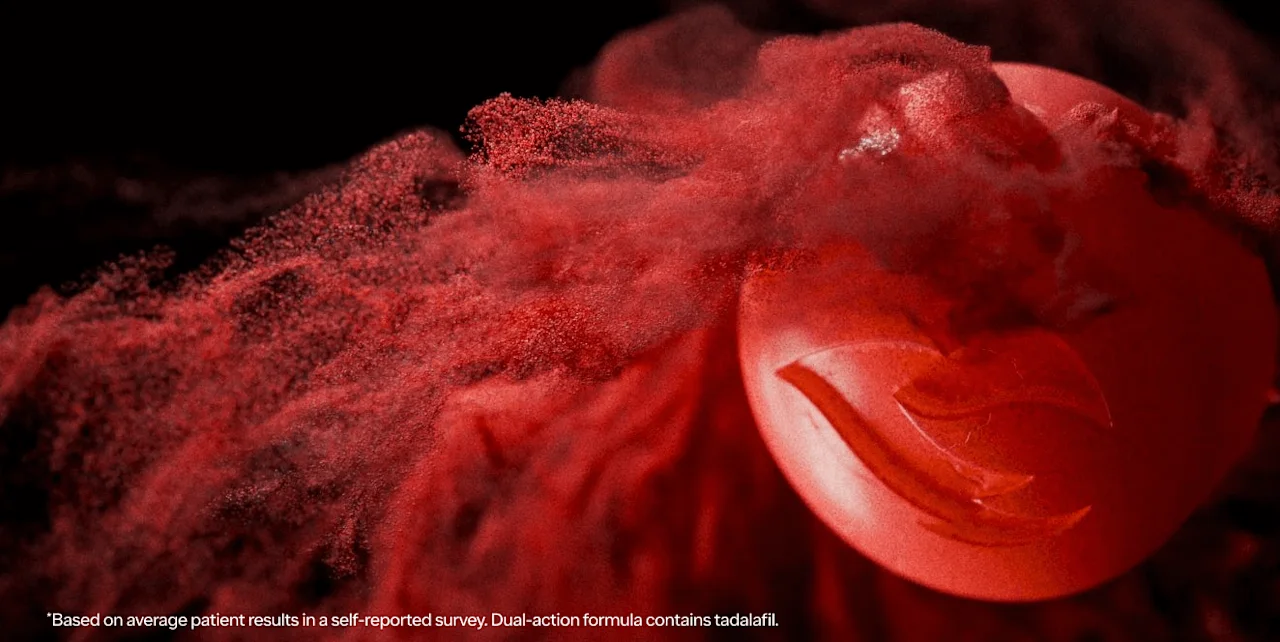Key takeaways
Penis weights are widely sold online, but experts generally consider them risky. They’re far more likely to lead to injuries — like skin tears, nerve damage, and loss of sensation — than to produce meaningful or lasting penis enlargement.
If you’re looking for ways to improve sexual performance or penis appearance in the short-term, there are safer, better-studied options, including prescription medications (like Viagra) and FDA-cleared penis pumps.
Penis size has a much smaller impact on sexual satisfaction than most people think. Technique, communication, and arousal matter far more.
Here's what we'll cover
Here's what we'll cover
Here's what we'll cover
Key takeaways
Penis weights are widely sold online, but experts generally consider them risky. They’re far more likely to lead to injuries — like skin tears, nerve damage, and loss of sensation — than to produce meaningful or lasting penis enlargement.
If you’re looking for ways to improve sexual performance or penis appearance in the short-term, there are safer, better-studied options, including prescription medications (like Viagra) and FDA-cleared penis pumps.
Penis size has a much smaller impact on sexual satisfaction than most people think. Technique, communication, and arousal matter far more.
A quick Google search of “penis weights” pulls up an entire marketplace of devices, including weighted cock rings, silicone sleeves, and apparatuses that connect to dangling weights (sometimes called penis hangers).
While they’re often marketed as a way to stretch the penis and make it longer, most experts do not recommend using penis weights. There’s little evidence they work, and a much higher risk of injury than benefit. If you’re concerned about your size or looking for ways to enhance erections, there are safer options.
Below, we break down what penis weights claim to do, what the research actually shows, and the alternatives worth considering.
Should you try penis weights?
In almost all cases, no, penis weights aren’t recommended. There’s virtually no solid research showing that hanging weights from your penis can make it permanently longer. What is documented are the risks: tissue trauma, nerve injuries, loss of sensation, and even emergencies requiring medical care.
Because these devices apply direct downward force to delicate skin, blood vessels, and nerves, it’s easy to overstretch tissues or restrict blood flow without realizing it. Some case reports have even described penile strangulation and tissue damage linked to rings or bands used in similar ways.
The bottom line: Penis weights carry significant risk with little proven benefit, and they’re definitely not a safe way to improve penis appearance or erections.
Alternatives to penis weights
If you’re curious about ways to improve erection quality or appearance, there are several options that are much safer — and far better studied — than hanging weights from your penis. Here are some evidence-based alternatives to consider.
Medications like Viagra
Prescription medications such as Viagra (sildenafil) or Cialis (tadalafil) don’t make the penis physically larger, but they can make erections look and feel fuller by improving blood flow to the penis. For many men, that increased firmness creates the appearance of increased size during an erection.
These medications are well-studied, approved by the United States Food and Drug Administration (FDA) for erectile dysfunction (ED), and considered safe for most people when prescribed by a clinician. They’re often recommended for men who want more reliable erections or more confidence during sex.
Safer stretching devices
While penis weights haven’t been studied, some penile traction devices — which gently stretch the penis using adjustable tension rather than dangling weights — have been evaluated in small clinical trials. These devices typically anchor to the base and tip of the penis and use a controlled mechanism to apply a steady, gentle stretch.
Research is still limited, but a few small studies suggest modest length increases over months of consistent use. Importantly, these devices are designed to avoid sudden force or blood-flow restriction, so they may be safer than weights.
Still, they’re not risk-free, and results aren’t guaranteed. They also require consistent use (think: multiple hours a day for months at a time). If you’re considering one, talk with a urologist familiar with traction therapy.
What exactly are penis weights, anyway?
After covering the big-picture concerns and safer alternatives, it’s worth looking at what penis weights actually are.
In practice, penis weights are a type of penis enlargement device designed to stretch the shaft by suspending small weights from it. Some products look like weighted cock rings, while others use silicone sleeves or extender-style apparatuses that clip to hanging weights.
The idea is simple: Apply downward tension to the skin and internal tissues so they gradually lengthen over time. But while stretching the penis in theory can influence length, there’s almost no research on weight-based devices themselves. And, as we’ve mentioned, these devices are not safe or recommended.
How do penis weights work?
Penis weights work by applying downward tension to the shaft with the goal of stretching the tissues over time. The idea is that consistent, gentle pulling will prompt the penis to lengthen — similar to how orthopedic traction can stretch other soft tissues in the body.
To understand why this concept exists, it helps to know that the skin, ligaments, and internal tissues of the penis are flexible. They have to be; erections depend on that natural elasticity. The theory behind penis weights is that if you apply sustained stretching for several hours a day, those tissues may gradually adapt and lengthen.
In practice, this usually means attaching small weights to the end of the penis using a ring, sleeve, or extender-style device. Most products require you to wear them daily, either under clothing or during dedicated “training” sessions.
While this explains the mechanics, it’s important to keep in mind that this method hasn’t been studied in clinical trials. The stretching principle is borrowed from research on controlled traction devices, not from research on hanging free weights from the sensitive skin of the penis, which may pose significantly higher risks.
How do penis stretchers work?
Penis stretchers, also called “traction devices,” are not the same thing as penile weights. They hug the tip and base of the penis and can be extended to gently stretch the shaft. Studies on these devices indicate that the basic premise underlying penis weights — which is that stretching the penis can make it longer — may have some truth to it, though choosing the right method is important for safety reasons.
For example, one study found that after nine months, men who wore a traction device for four to six hours per day lengthened their flaccid penis by an average of 1.7 centimeters (0.67 inches) and their erect penis by an average of 1.2 centimeters (0.47 inches). The same study found that users tend to be satisfied with the results.
However, the available studies are small, and experts who have reviewed them say they may have been influenced by bias (for example, some studies were funded by the companies who make these devices), so they may not be reliable.
Side effects and risks of penis weights and stretching devices
Penis weights haven’t been studied in clinical trials, but some injuries reported in medical case studies and emergency departments give a good sense of the risks. Several published reports describe penile strangulation, tissue damage, and loss of blood flow linked to tight rings or bands used around the penis — devices similar to the mechanisms used in many penis-weight products.
Commonly reported risks include:
Skin tears: Small or large breaks in the skin can occur when the tissue is overstretched or rubbed repeatedly.
Bruising and inflammation: Blood vessels can rupture under strain, causing visible bruising or swelling.
Loss of sensation: Reduced blood flow or nerve injury may temporarily — or in rare cases, permanently — diminish feeling in the glans (penis head).
Penile strangulation: If blood flow becomes restricted by a tight ring or device, it can become a medical emergency requiring removal in a hospital.
Penile fracture: Severe misuse or sudden force may injure internal tissues, sometimes referred to as a “penis fracture,” which requires urgent medical care.
On the other hand, penile traction devices appear safer. They have mainly been studied for people with Peyronie’s disease (a condition where scar tissue forms inside the penis and can lead to curvature, shortening, and pain). The side effects tend to be mild and temporary. They include redness, discomfort, and numbness of the glans, all of which usually resolve within minutes of removing the device. One of the main issues with penile traction devices is the length of time they need to be used, which can be inconvenient for many people.
Can supplements make your penis bigger?
There’s no supplement proven to permanently increase penis size. Some herbal products claim to improve blood flow, libido, or erection quality, but most don’t have strong clinical evidence behind them and some may even be unsafe.
Common ingredients include ginseng, L-arginine, and horny goat weed. However, results are inconsistent across studies, and the FDA doesn’t regulate supplements like they do prescription drugs.
Can Viagra make your penis bigger?
No, Viagra doesn’t increase your penis size permanently. What it can do is help you achieve a firmer, fuller erection by improving blood flow. For some men, that added firmness can make the penis appear slightly larger during an erection, but the actual structure or length doesn’t change.
Viagra is FDA-approved for erectile dysfunction and is well-studied for its ability to enhance blood flow to the erectile tissue. Once the medication wears off, though, or your erection has ended, your penis returns to its baseline appearance.
What exercises are best for penis growth — if any?
There aren’t any exercises proven to make the penis permanently larger. No workout, stretch, or massage technique has been shown in clinical research to reliably increase penis length or girth.
That said, some routines can support better erectile function or temporarily boost blood flow. These won’t change your actual size, but they may help you feel firmer or more responsive during sex.
Kegel exercises are a good example. They strengthen the pelvic floor muscles that play a key role in erections and ejaculation control. A stronger pelvic floor can sometimes lead to firmer erections, but it won’t increase penis size.
General cardiovascular exercise can help, too. Regular physical activity supports healthy circulation, which is essential for strong, consistent erections (even though it doesn’t affect the penis’s structural size).
The history of penis weights and stretching devices
Penis stretching has roots that go back centuries. In some cultures, men used manual stretching or weighted ornaments as part of broader body-modification traditions, not just as medical treatments or attempts to enhance sexual performance.
Modern traction devices, however, trace back to the 2000s, when urologists began exploring controlled stretching as a therapy for Peyronie’s disease. The goal was to gently lengthen scar tissue to reduce curvature and improve comfort during erections, leading to the traction devices you see on the market today.
Bottom line
A lot of men worry about their penis size, and the internet is full of products promising quick fixes. But when it comes to penis weights, the risks are far better documented than any benefits. The research just isn’t there, and safer options exist for anyone looking to improve erection quality or confidence in their penis. Here are the key takeaways:
Penis weights aren’t supported by research. There’s no clinical evidence showing they permanently increase length or girth.
Penis weights are risky. Skin tears, nerve issues, bruising, and even emergencies like penile strangulation have been reported.
Safer alternatives exist. Medications like Viagra, FDA-cleared pumps, and medically designed traction devices have far more evidence behind them.
Exercise and supplements won’t change size. They may help with erection quality, but not anatomical length or girth. Be aware of potential side effects and discuss with your healthcare provider before starting a new supplement.
Frequently asked questions (FAQs)
How can I increase my penis thickness?
There’s no exercise, supplement, or at-home method proven to permanently increase penis thickness. One review shows that some clinician-performed girth enhancement procedures, such as injectable fillers, can produce measurable increases when done by trained specialists. These treatments come with risks and should only be done under medical supervision.
Is it possible to increase the penis size?
Only to a limited extent. Medical traction devices have shown small gains in length (but not girth) in a few studies, but results vary and require months of consistent use. Surgical procedures for men with diagnosed micropenis can produce modest length increases, but they’re not commonly recommended due to the risk of side effects and aren’t considered first line therapy. Most other methods — like weights and supplements — don’t have strong evidence behind them.
Does weight lifting affect penis size?
Not directly. Strength training won’t make your penis larger or smaller. However, improving overall fitness can support healthy blood flow, which may lead to stronger erections. Regular exercise may also boost mood and reduce anxiety, which can indirectly improve sexual performance.
Can Cialis make my penis bigger?
No, Cialis doesn’t permanently increase penis size. Like Viagra, it improves blood flow to the erectile tissue when you are aroused, which can make erections look fuller or firmer temporarily. But once the medication wears off, the penis returns to its baseline size.
DISCLAIMER
If you have any medical questions or concerns, please talk to your healthcare provider. The articles on Health Guide are underpinned by peer-reviewed research and information drawn from medical societies and governmental agencies. However, they are not a substitute for professional medical advice, diagnosis, or treatment.
Viagra Important Safety Information: Read more about serious warnings and safety info.
Cialis Important Safety Information: Read more about serious warnings and safety info.
References
Campbell, J. & Gillis, J. (2017). A review of penile elongation surgery. Translational Andrology and Urology, 6(1), 69–78. doi: 10.21037/tau.2016.11.19. Retrieved from https://www.ncbi.nlm.nih.gov/pmc/articles/PMC5313298/
Chen, Y., Jiang, Y., Li, X., et al. (2025). Penile enhancement: A comprehensive and current perspective. Current Urology, 19(3), 145–156. doi: 10.1097/CU9.0000000000000264. Retrieved from https://pmc.ncbi.nlm.nih.gov/articles/PMC12076428/
Chung, E. & Brock, G. (2013). Penile traction therapy and Peyronie's disease: a state of art review of the current literature. Therapeutic Advances in Urology, 5(1), 59–65. doi: 10.1177/1756287212454932. Retrieved from https://pmc.ncbi.nlm.nih.gov/articles/PMC3547530/
Fahmy, G. & Hess, J. (2024). Tadalafil. StatPearls. Retrieved from https://www.ncbi.nlm.nih.gov/books/NBK603743/
Kalathia, J., Patel, K., Talreja, B., et al. (2023). Penile incarceration with weight plate: An unusual case with review of literature. Urology Case Reports, 51, 102569. doi: 10.1016/j.eucr.2023.102569. Retrieved from https://pmc.ncbi.nlm.nih.gov/articles/PMC10561054/
Khera, M., Bhattacharyya, S., & Miller, L. E. (2023). Effect of aerobic exercise on erectile function: systematic review and meta-analysis of randomized controlled trials. The Journal of Sexual Medicine, 20(12), 1369–1375. doi: 10.1093/jsxmed/qdad130. Retrieved from https://pubmed.ncbi.nlm.nih.gov/37814532/
Lee, H. W., Lee, M. S., Kim, T. H., et al. (2021). Ginseng for erectile dysfunction. The Cochrane Database of Systematic Reviews, 4(4), CD012654. doi: 10.1002/14651858.CD012654.pub2. Retrieved from https://pmc.ncbi.nlm.nih.gov/articles/PMC8094213/
Leslie, S. W. & Sooriyamoorthy, T. (2024). Erectile dysfunction. StatPearls. Retrieved from https://www.ncbi.nlm.nih.gov/books/NBK562253/
Li, M. K., Shahinyan, G., Sigalos, J. T., et al. (2023). Penile and Foreskin Stretching Practices Through Time and Culture. Urology, 175, 2–5. doi: 10.1016/j.urology.2023.02.018. Retrieved from https://www.goldjournal.net/article/S0090-4295(23)00183-8/fulltext
Littara, A., Melone, R., Morales-Medina, J. C., et al. (2019). Cosmetic penile enhancement surgery: a 3-year single-centre retrospective clinical evaluation of 355 cases. Scientific Reports, 9(1), 6323. doi: 10.1038/s41598-019-41652-w. Retrieved from https://www.nature.com/articles/s41598-019-41652-w
Mahindru, A., Patil, P., & Agrawal, V. (2023). Role of physical activity on mental health and well-being: a review. Cureus, 15(1), e33475. doi: 10.7759/cureus.33475. Retrieved from https://pmc.ncbi.nlm.nih.gov/articles/PMC9902068/
Mandal, R. K., Ghosh, S. K., & Sarkar, S. (2020). Penile strangulation: A case report of a potentially serious emergency condition in a young male. Indian Journal of Sexually Transmitted Diseases and AIDS, 41(1), 127–128. doi: 10.4103/ijstd.IJSTD_87_16. Retrieved from https://www.ncbi.nlm.nih.gov/pmc/articles/PMC7529160/
Marra, G., Drury, A., Tran, L., et al. (2020). Systematic review of surgical and nonsurgical interventions in normal men complaining of small penis size. Sexual Medicine Reviews, 8(1), 158–180. doi: 10.1016/j.sxmr.2019.01.004. Retrieved from https://pubmed.ncbi.nlm.nih.gov/31027932/
Myers, C., & Smith, M. (2019). Pelvic floor muscle training improves erectile dysfunction and premature ejaculation: a systematic review. Physiotherapy, 105(2), 235–243. doi: 10.1016/j.physio.2019.01.002. Retrieved from https://pubmed.ncbi.nlm.nih.gov/30979506/
Nadaph, M. I., Meng, C., & Wu, X. (2023). Clinical applications of skin traction technique with adjustable tension in treatment of large area skin defects. BMC Musculoskeletal Disorders, 24(1), 556. doi: 10.1186/s12891-023-06628-y. Retrieved from https://pmc.ncbi.nlm.nih.gov/articles/PMC10324261/
Nowroozi, M. R., Amini, E., Ayati, M., et al. (2015). Applying extender devices in patients with penile dysmorphophobia: assessment of tolerability, efficacy, and impact on erectile function. The Journal of Sexual Medicine, 12(5), 1242–1247. doi: 10.1111/jsm.12870. Retrieved from https://www.sciencedirect.com/science/article/abs/pii/S1743609515310274
Panchatsharam, P., Durland, J., & Zito, P. (2023). Physiology, erection. StatPearls. Retrieved from https://www.ncbi.nlm.nih.gov/books/NBK513278/
Pandher, K., Stubbee, R., & Sylora, J. (2020). Penile necrosis induced by rubber bands - Case report. Urology Case Reports, 33, 101372. doi: 10.1016/j.eucr.2020.101372. Retrieved from https://www.ncbi.nlm.nih.gov/pmc/articles/PMC7574035/
Patel, P., Horenstein, M. & Zwibek, H. (2024). Exercise physiology. StatPearls. Retrieved from https://www.ncbi.nlm.nih.gov/books/NBK482280/
Smith, B. & Babos, M. (2023). Sildenafil. StatPearls. Retrieved from https://www.ncbi.nlm.nih.gov/books/NBK558978/
Soubra, A., Natale, C., Brimley, S., et al. (2021). Revelations on men who seek penile augmentation surgery: a review. Sexual Medicine Reviews, S2050-0521(21)00084-6. doi: 10.1016/j.sxmr.2021.10.003. Retrieved from https://www.sciencedirect.com/science/article/abs/pii/S2050052121000846
Srivatsav, A., Balasubramanian, A., Pathak, U. I., et al. (2020). Efficacy and safety of common ingredients in aphrodisiacs used for erectile dysfunction: a review. Sexual Medicine Reviews, 8(3), 431–442. doi: 10.1016/j.sxmr.2020.01.001. Retrieved from https://pmc.ncbi.nlm.nih.gov/articles/PMC7340557/
Toussi, A., Ziegelmann, M., Yang, D., et al. (2021). Efficacy of a novel penile traction device in improving penile length and erectile function post prostatectomy: results from a single-center randomized, controlled trial. The Journal of Urology, 206(2), 416–426. doi: 10.1097/JU.0000000000001792. Retrieved from https://pubmed.ncbi.nlm.nih.gov/34060339/
Joseph, J., Ziegelmann, M. J., Alom, M., et al. (2020). Outcomes of RestoreX penile traction therapy in men with peyronie's disease: results from open label and follow-up phases. Journal of Sexual Medicine, 17(12), 2462-2471. doi: 10.1016/j.jsxm.2020.10.003. Retrieved from https://pubmed.ncbi.nlm.nih.gov/33223425













